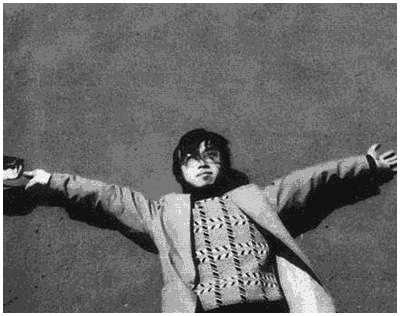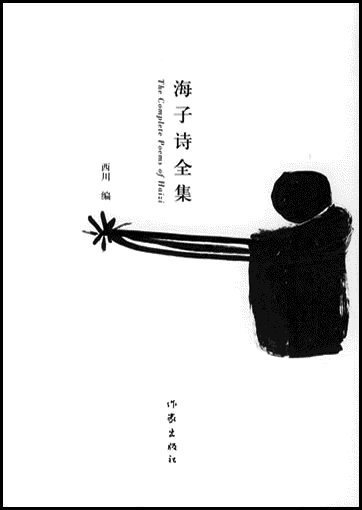Hai Zi (Zha Haisheng)
Dan Murphy, Translator
(Host Publications)

- Bodhisattva is an Eastern woman
she is very willing
to help
she helps you only once per life
and this is enough
passing through her
and passing through myself
two hands happen upon you, your
breath
two trembling little red sails
between my lips
Bodhisattva knows
Bodhisattva lives in a bamboo forest
she knows everything
knows tonight
knows all love
knows seawater is me
washing your eyebrows
- Although his work is distinctly Chinese, his poetry does not belong exclusively to any particular time or place --- it transcends all of this.
Hai Zi clinched his name as a poet mauve by writing endless amazing verse when he was still quite young and, just before fame could hit, killing himself near his home in Shanhaiguan, China. He was twenty-five-years-old. This would automatically put him right up there with Keats, Byron, Wilfred Owen and perhaps Dylan Thomas in the poetic martyr sweepstakes. The picture of his passing is not without a certain drama: the train screaming down the tracks, the noise and the steam and thrumming of the pistons, the shriek of brakes on metal, and this not unhandsome, brilliant young man throwing himself on the tracks. Obviously one with too little regard for himself. Was he zonked? Was he suffering from a broken heart? Was he anguished by the politics of China? Was he, like Keats, embittered by a bad review of his writings? According to Murphy, in his last years, Hai Zi suffered from hallucinations. It's believable: the poetry is hallucinatory, reminding one of Baudelaire's Le Spleen de Paris, the Tamarit Poems of García-Lorca, Dame Edith Sitwell's startling imagery ("the allegro Negro cocktail shaker") ... or, perhaps, Paul Celan: The most obvious clue about Hai Zi's final decision --- every day we must choose to live; we can choose but once to part --- turns up in his poem "On Death," dedicated to Van Gogh. It contains all the elements of a suicide note: the dark sleep; the holy hands of doves (clumsy in the field); the flowers blooming over him; his body being taken by "the empress of death." Only a schizophrenic could join what most would think as dissonant (flowers, cows, sleep), tie them to "I think I am beautiful" and ultimately spirit us up and away with,
I remain deeply asleep on a rainy night a cow thiefBlack milk of daybreak we drink you at night
we drink you at noon in the morning we drink you at sundown
we drink and we drink you
a man lives in the house your golden hair Margarete
your ashen hair Shulamith he plays with the serpents
on a rainy night a cow thief
climbs in my window
and on my dreaming body
picks sunflowers
and on my dreaming body
colorful sunflowers bloom
those picking hands
like beautiful and clumsy doves
in a field of sunflowers
steals me
from my human body
I am still deeply sleeping
I am taken beyond my body
beyond the sunflowers. I am the world's
first cow (the empress of death)
I feel that I am beautiful
I am still deeply sleeping